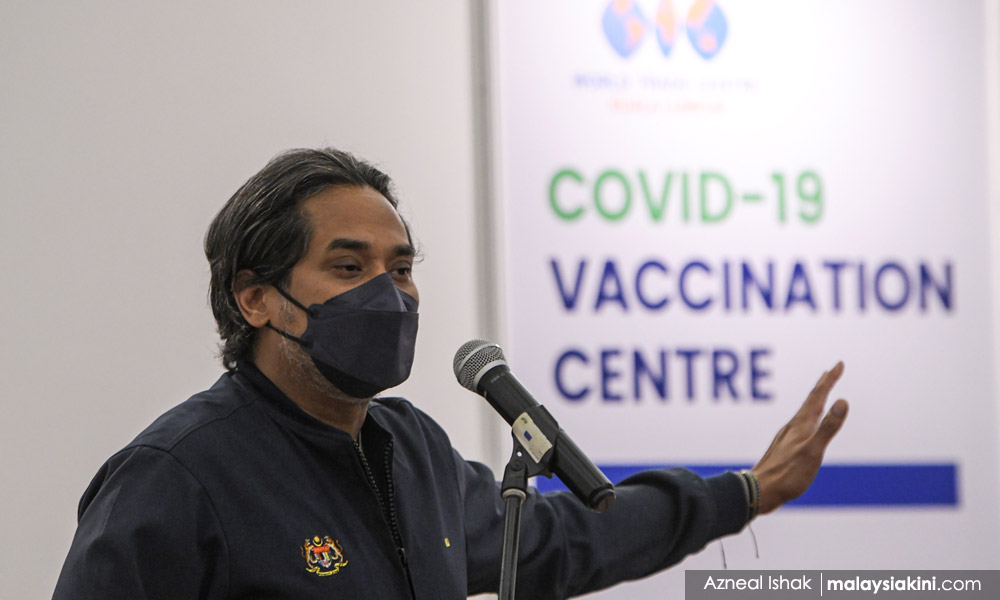Malaysia is now the 20th highest Covid-19 vaccination rate in the world, surpassing many early adopters such as Israel and the US, and is now neck-to-neck with the UK.
According to data compiled by the website Our World in Data, Malaysia has fully vaccinated 66.84 percent of its population, putting it just ahead of countries like Sweden (66.73 percent), Japan (66.37 percent), and the UK (66.37 percent).
However, the latest available data for the UK is dated Oct 13 and is not as recent as the other countries mentioned above.
Malaysia is currently behind Norway (67.72 percent), the Netherlands (67.58 percent), and France (66.98 percent), based on the latest available data for each country.
The country with the highest vaccination rate is Portugal (86.38 percent), followed by the United Arab Emirates (84.94 percent), Malta (82.46 percent), Iceland (80.92 percent), and Singapore (79.23 percent).
The dataset at Our World in Data is compiled from various official sources and is updated several times a day.
The dataset includes numerous dependencies and other entities like Hong Kong, Macau, Faeroe Island and Tokelau, which Malaysiakini has excluded from this ranking. Only UN member states are considered.
In addition, no data is available for some countries such as Qatar, North Korea and Afghanistan.
For the record, the official vaccination rate reported by the Malaysian government is slightly higher at 67.1 percent. The discrepancy is due to different estimates used for the size of Malaysia’s population.
Improved vaccine supply situation
Malaysia’s Covid-19 vaccination campaign had started on Feb 24, but its initial slow pace had drawn criticism. Khairy Jamaluddin, who was then science minister and now health minister, had blamed it on vaccine inequity caused by wealthy countries buying up more vaccines than they needed.

However, the pace of the country’s vaccination campaign started to accelerate in mid-May as the vaccine supply situation in Malaysia improved, reaching a peak of over half-a-million doses administered per day in late July.
On Sept 8, Malaysia expanded its vaccination program to include adolescents and began rolling out third doses and booster shots to immunocompromised people and frontliners on Oct 13.
Amid this vaccination effort, Malaysia’s vaccination rate began to overtake those of many countries that were held up several months ago as examples of highly vaccinated countries.
The data showed that Malaysia overtook the US on Sept 13, and then Israel on Oct 9, and has now caught up on the UK.
Nevertheless, global vaccine inequity remains a problem.
Only 35.71 percent of the global population has been fully vaccinated, most of which are the world’s high-income and upper-middle-income countries.
Bosnia and Herzegovina, which received a donation of 50,000 vaccine doses from Malaysia on June 25, now has a vaccination rate of only 15.57 percent.
A total of 48 countries have vaccination rates of less than 10 percent out of 180 countries where data is available, including 16 that have vaccination rates of less than one percent such as Papua New Guinea (0.67 percent), Yemen (0.16 percent) and the Democratic Republic of Congo (0.04 percent).
The World Health Organization (WHO) had pleaded with rich countries not to order booster shots while many countries have yet to have enough vaccines even to protect healthcare workers, and urged for these supplies to be directed to the Covax vaccine sharing programme instead.
The UN has warned that inequitable vaccine distribution leaves billions of people vulnerable to the disease, which would increase the risk that even deadlier variants could emerge and spread across the world.
Nevertheless, WHO advisers have recently recommended immunocompromised people should receive an additional dose, as do recipients of Sinovac and Sinopharm vaccines who are above the age of 60. These are considered an extended part of their primary vaccination rather than a booster shot since the effect of two doses for these populations is not considered adequate.
Khairy has defended Malaysia’s rollout of booster shots, saying Malaysia’s rollout is highly targeted to certain groups and there is no wastage or hoarding.
- Mkini




No comments:
Post a Comment
Note: Only a member of this blog may post a comment.